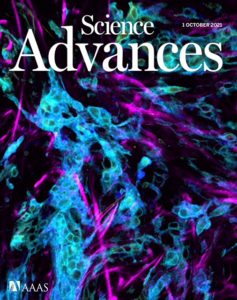
Intravital imaging technology guides FAK-mediated priming in pancreatic cancer precision medicine according to Merlin status. Murphy KJ, Reed DA, Vennin C et al.
A new approach to ‘prime’ the tumour environment may improve how effective chemotherapy is for pancreatic ductal adenocarcinoma, one of the most aggressive forms of pancreatic cancer. In preclinical models, a team from the Invasion and Metastasis Lab at The Garvan Institute of Medical Research could enhance the tumours’ response to chemotherapy by reducing the stiffness and density of the connective tissue known as the stroma, and reduce cancer spread by up to 50%.
“By making cancer cells more sensitive to chemotherapy, we hope to improve survival rates for pancreatic cancer patients,” says Professor Paul Timpson, Cancer Research Theme Leader at the Garvan Institute and co-senior author of the findings published in Science Advances. “This work is a powerful example of cutting-edge research in the laboratory leading to partnership with industry and potential clinical translation.”
The findings will be investigated as part of a new clinical trial in collaboration with Melbourne-based Amplia Therapeutics Limited, which is set to begin Phase II clinical trials of its FAK inhibitor AMP945 next year to determine if the approach will be effective in patients.
